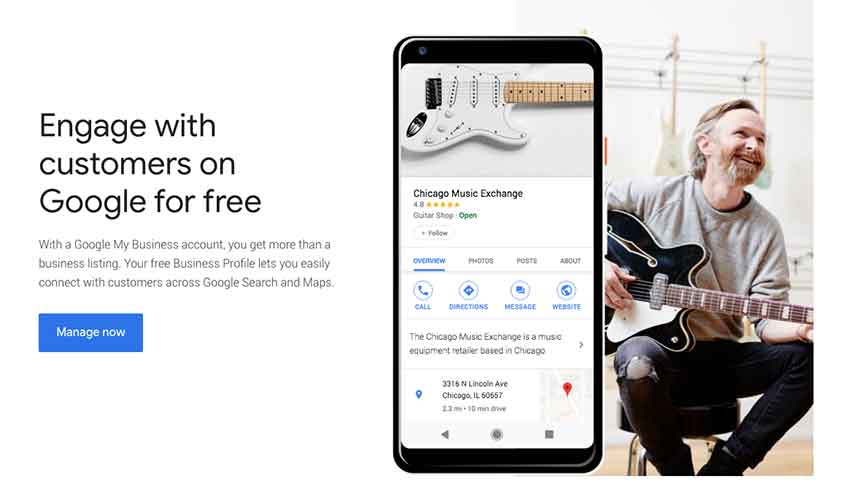Show:
The Ultimate Guide To Launching A Winning Local SEO Strategy
If keeping your company competitive is the ultimate goal, it would be wise to prioritize local search engine optimization (SEO). As consumers are utilizing the Internet to find local businesses, think of local SEO as an essential marketing tool if you want your company to expand its reach to the target audience.

Whether you currently maintain an online presence or manage a physical store in an area, creating a strategy targeting localized searches and consumers in your location is a must. It’s the key if you want your brand to rank highly in search engine results pages (SERPs), stand out from the competition, and effectively reach out to your target audience. Consider working with Digital Eagles and other reputable local SEO service providers to ensure a good start.
It’s crucial to remember that businesses serving a specific location must achieve a good rank in the local search, specifically for the keywords the target audience uses. This way, they can become more visible so target customers will see them and eventually buy or avail the products or services they offer. In the long run, they will reap the benefits of their SEO efforts.
Considerations When Creating A Successful Local SEO Strategy
When your business requires local SEO, you need to take action by developing a local SEO strategy to boost local rankings and website traffic. Here are several pointers to help you create a winning local SEO strategy.
1. Scrutinize The Products Or Services Your Brand Offers
The first task is to determine the keywords or terms you should rank for. Generally, it all depends on the products or services your company offers. The main point is to figure out what your brand offers and pinpoint the keywords your target audience may be searching for to find businesses similar to yours. Create a list of these keywords, which will be a starting point for your keyword research. Today, you can find several reliable local SEO tools to help you determine these terms. Doing so will help you decide on the specific keywords to target on your website.
2. Perform Keyword Research
One of the main objectives of local SEO is to outrank the local competition. The best way to make it happen is to know the keywords the competition ranks for. Various online tools help conduct a competitive analysis, so you’ll know the keywords the competition is ranking for, the location of their backlinks, and many more.
Depending on the tool you use, it involves a search of the competition’s domain. In most cases, you’ll receive a list of keywords they are ranking for organically. You may also see the search volume and competition metrics to determine if these keywords suit your site.

3. Maximize Your Google Business Profile (GBP) And Online Business Directories
If you want your company’s ranking to stand out from the competition, make it a priority to claim your Google Business Profile (GBP) listing. Generally, the listing covers valuable information about your company and location. Consider this a crucial step to ensure your company will appear in the local SERPs. Make sure to provide your business name, address, phone number, products or services your brand offers, and photos.
After optimizing your GBP, you can start creating your business profiles on the local directory sites to widen your company’s reach. It would be best to prioritize directories with higher domain authority than small-scale directories to get the best results. While doing so, make sure to include details such as your name, address, and phone number (NAP) to ensure relevant results.

4. Develop A Localized Link Building Strategy
If you want your local SEO to be successful, link building plays an important role, but there’s a difference with localized link building. Generally, it stresses the importance of the physical location of the sites linking to your business website.
One way to ensure a good start is to get links from other businesses in your area. You should also come up with localized content to drive in local links. In most cases, you can do this with guest posting or outreach.
5. Create Local Content
When providing content, it should deliver value to your target audience. Although creating broad topics will cater to a large audience, it may be best to focus on local or industry-related content to attract the local audience. You should try to establish your brand as the authority in your industry or niche by promoting news, events, and other educational content.
6. Develop Localized Landing Pages
Aside from the content and link building, it would be best if you also had localized landing pages. The approach aims for better rankings in local organic searches. Essentially, you must ensure that the landing pages will be optimized with location-specific keywords while offering valuable content for your target audience.
If you want a good start in creating localized landing pages, you should integrate H1, H2, and H3 headings, images, and internal links, and create content containing the right keywords. Once you do this right, you can also implement paid advertisements on your landing pages to drive both paid and organic traffic. Don’t forget to incorporate enticing calls-to-action (CTAs) to encourage your audience to get in touch soon.

7. Gather Client Reviews
One way to improve your Google My Business presence is to gather reviews from your clients. Doing so will encourage potential clients from your area to check out what your brand is all about. After a successful sale, personally ask for reviews from customers. You can also act professionally by thanking customers and responding to negative reviews immediately.
8. Mobile-Friendly Website
Today, as more consumers rely on mobile devices to search for a business, having a mobile-friendly site that allows convenient access is a priority. Most likely, consumers will utilize your website via a mobile device when checking out reviews, contact details, or physical location. If you want your business to be readily found by your target audience online, make the necessary adjustments to make your site mobile-friendly.
Final Thoughts
When you want your local business to maintain a competitive edge, making the most of local SEO is crucial. Creating an effective local SEO strategy is possible. With the help of these valuable pointers, they’ll serve as your guide in launching a successful local SEO strategy that’ll bring about several benefits, such as better organic traffic, establishing brand awareness, and gaining authority.

 Return to Previous Page
Return to Previous Page








